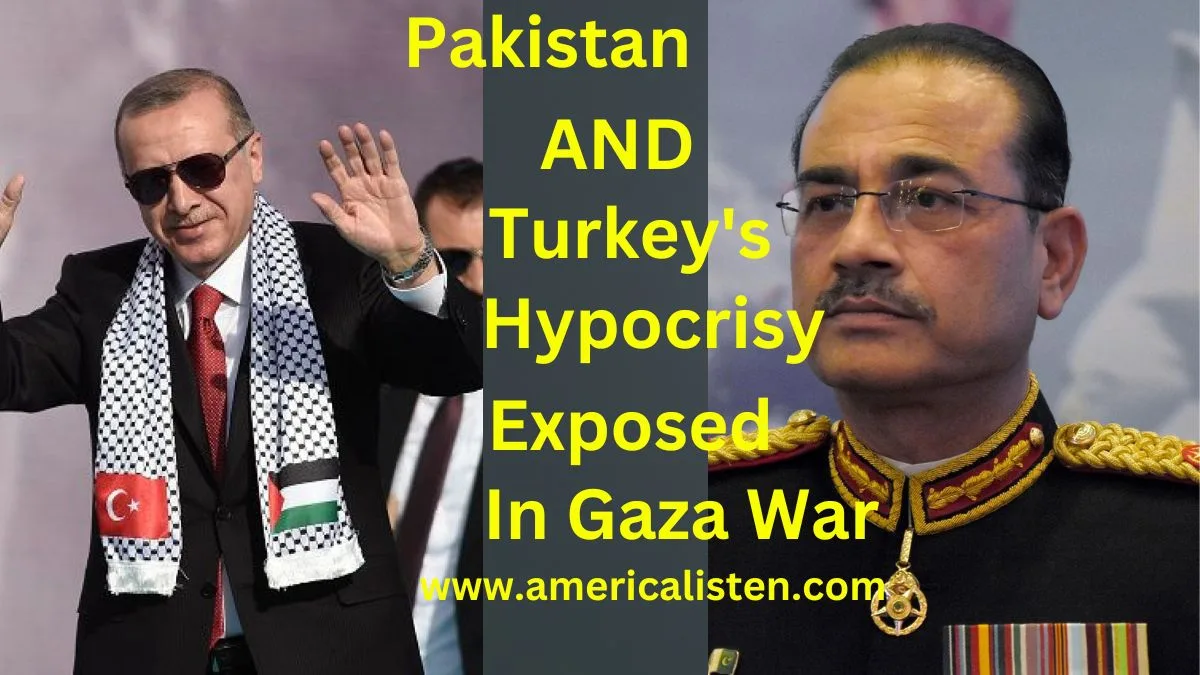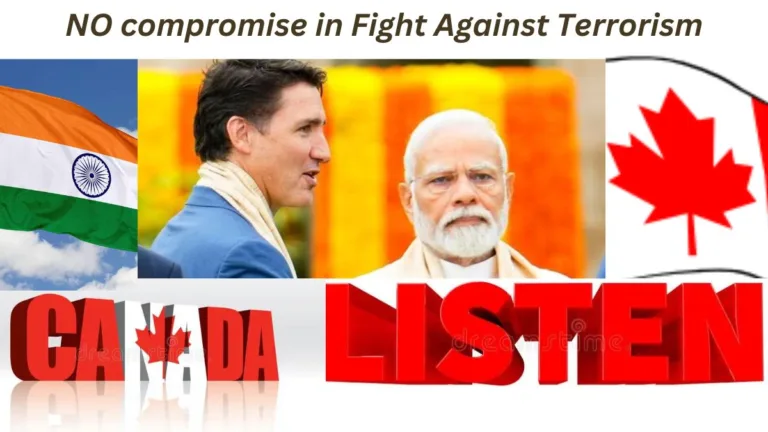“Shocking Truth Revealed: Pakistan and Turkey’s Hypocrisy Exposed on the Global Stage – You Won’t Believe What They’re Really Up To!”
The Rulers of Pakistan and Turkey Should Give Up Hypocrisy
In the ever-evolving landscape of global politics and diplomacy, nations often find themselves at the crossroads of lofty rhetoric and pragmatic actions. Pakistan and Turkey, two nations with a rich history of shared values, Islamic identity, and political aspirations, have been scrutinized for their stance on various international issues, prompting calls for a more genuine and principled approach to global affairs.
Hypocrisy in International Diplomacy
The term ‘hypocrisy’ often creeps into discussions concerning the foreign policies of Pakistan and Turkey. While both countries have historically presented themselves as champions of justice and supporters of oppressed communities, their recent actions, or lack thereof, have led to questions about the sincerity of their commitments to these causes.
Turkey’s Ambitious Rhetoric
Under the leadership of President Recep Tayyip Erdogan, Turkey has adopted a bold foreign policy, positioning itself as a significant player in international affairs. Erdogan’s claim to be the “heir of the Ottoman Caliphate” has invoked sentiments among some, but his actions have sometimes contradicted his lofty rhetoric. Turkey’s military involvement in conflicts in Syria and Libya, at times, has been driven more by self-interest than a genuine desire to promote peace and justice.
Furthermore, Turkey’s stance on the Palestinian issue, which it has passionately advocated for, has yet to yield tangible results. While Erdogan’s speeches may resonate with those seeking a robust response to global issues affecting Muslims, the practical impact of Turkey’s efforts remains questionable.
Pakistan’s Pledges and Shortcomings
Pakistan, a nuclear-armed nation with a substantial Muslim population, has historically presented itself as a voice for the oppressed and a supporter of just causes within the Muslim world. However, recent events have highlighted a gap between its pledges and actions.
The situation in Kashmir stands as a glaring example. Despite longstanding promises to support the rights of Kashmiris, Pakistan has struggled to gain significant international traction in advocating for their cause. Younger generations in the region increasingly perceive Pakistan as having sold out to India, weakening its historical position as a champion of Kashmiri rights.
Turkey’s Role in the Muslim World:
Turkey occupies a unique position in the Muslim world. As a nation with a rich history and cultural ties to the Islamic world, it has often been seen as a potential leader in addressing the challenges facing the Muslim community. President Erdogan’s ambitious foreign policy and his self-presentation as the “heir of the Ottoman Caliphate” have raised both hopes and concerns.
On one hand, Erdogan’s strong rhetoric has resonated with many Muslims seeking a powerful advocate on the global stage. His vocal support for the Palestinian cause and his criticism of Israeli actions have been viewed as steps in the right direction. However, Turkey’s ability to translate this rhetoric into meaningful diplomatic successes has been limited.
In recent years, Turkey’s military involvement in conflicts in Syria and Libya has come under scrutiny. While the government frames these actions as efforts to protect the interests of Muslims and promote regional stability, critics argue that they are often driven by Turkey’s national interests. This has raised questions about the true motivations behind Turkey’s foreign policy.
Moreover, the Palestinian issue serves as a litmus test for Turkey’s commitment to the Muslim world. While Erdogan’s speeches and declarations may strike the right chords with those who sympathize with the Palestinian struggle, the practical impact of Turkey’s efforts to address the Israeli-Palestinian conflict remains a subject of debate.
Pakistan’s Role in the Muslim World:
Pakistan, with its significant Muslim population and historical ties to the Islamic world, has long been considered a key player in addressing the challenges faced by the Muslim community. However, in recent years, there has been growing disillusionment among some segments of the Muslim world regarding Pakistan’s role and commitments.
The situation in Kashmir has been a focal point of concern. While Pakistan has consistently pledged to support the rights of Kashmiris and raise their cause on international platforms, its efforts have faced limitations. The revocation of Article 370 by India in 2019 and the subsequent changes in the status of Jammu and Kashmir led to frustration and resentment among many who expected Pakistan to take more assertive action.
In particular, the younger generation in Kashmir has expressed disappointment in Pakistan’s handling of the issue. The perception that Pakistan has not effectively advocated for the rights of Kashmiris has strained the relationship between Pakistan and the Kashmiri population. They believe that Pakistan may have, in their eyes, ‘sold out’ to India, and this perception threatens to erode Pakistan’s historical position as a champion of Kashmiri rights.
The Impact of the Palestinian Cause:
The recent tragedy in Palestine, with its humanitarian and political dimensions, has had profound effects on both Turkey and Pakistan. For Turkey, it has raised questions about President Erdogan’s image and his ability to respond effectively to crises in the Muslim world. His portrayal as the “heir of the Ottoman Caliphate” has been tarnished by the perception that his actions do not align with his rhetoric.
In Pakistan, the government’s handling of the situation has drawn negative attention. While the state has been criticized for its inefficiency, it raised eyebrows when it spent a substantial amount of money on welcoming Nawaz Sharif but was unable to provide basic relief to the people of Gaza. This glaring disparity between lavish expenditures and a lack of support for those in need has raised questions about the government’s priorities and competence.
Furthermore, Pakistan’s international image has suffered due to its inability to take a strong stance on the Palestine issue. Pakistan’s past boasts about its nuclear capabilities have been undermined by its lack of meaningful action when it comes to addressing critical global concerns. This inaction has left Pakistan in a vulnerable position, especially in the face of India’s assertion that Pakistan’s nuclear threats are hollow.
The Impact on Pakistan’s Relations with Kashmir:
In the wake of the Kashmir dispute and Pakistan’s handling of the situation, there has been growing resentment among the younger generation in the region. They believe that Pakistan may have ‘sold out’ to India after the 2019 developments. This perception has strained Pakistan’s relationships with its own people and the Kashmiri population, who had historically looked to Pakistan as a champion of their rights.
The Impact on Turkey’s Image:
The recent tragedy in Palestine has had profound adverse effects on Turkey. President Recep Tayyip Erdogan had positioned himself as the “heir of the Ottoman Caliphate,” projecting an image of strength and leadership. However, his response to the crisis in Palestine left many of his supporters disillusioned. It tarnished his image and reputation as a strong leader, as he failed to take effective action to address the situation. This inaction has not only disappointed his followers but also weakened Turkey’s position as a leading Sunni Muslim nation with military power.
The Impact on Pakistan’s Image:
In Pakistan, the adverse effects of the latest tragedy in Palestine are equally significant. The government, often criticized for its inefficiency, drew negative attention when it spent a substantial amount of money to welcome Nawaz Sharif, yet could not manage to provide basic relief to the people of Gaza. This glaring disparity between lavish expenditures and a lack of support for those in need has raised questions about the government’s priorities and competence.
Furthermore, Pakistan’s international image has suffered due to its inability to take a strong stance on the Palestine issue. Pakistan’s past boasts about its nuclear capabilities have been undermined by its lack of meaningful action when it comes to addressing critical global concerns. This inaction has left Pakistan in a vulnerable position, especially in the face of India’s assertion that Pakistan’s nuclear threats are hollow.
The Way Forward:
It is crucial for both Turkey and Pakistan to reassess their roles in international diplomacy and make substantive changes that align with their historical values and aspirations.
1. Consistency and Pragmatism:
Both nations should adopt a more consistent and pragmatic approach to international issues. Rhetoric and actions should be closely aligned to avoid creating unrealistic expectations and disillusionment.
2. Diplomatic Initiatives:
Efforts to promote dialogue, negotiation, and peaceful resolutions to conflicts should take precedence over military involvement and confrontational rhetoric. Diplomatic initiatives can yield more sustainable outcomes.
3. Humanitarian Support:
Continuing to provide humanitarian aid to affected Muslim communities, especially in areas of conflict, can demonstrate genuine concern for fellow Muslims and help alleviate their suffering.
4. Advocacy for Unity:
Both countries should actively seek to foster unity among Muslim-majority nations, rather than contributing to divisions that weaken the collective strength of the Muslim world.
In conclusion, the rulers of Pakistan and Turkey have a significant role to play in global politics and diplomacy. By giving up hypocrisy, embracing a more sincere, principled approach, and focusing on practical solutions, they can work towards a brighter and more harmonious future for their nations and the wider Muslim world.
Extended Recommendations:
5. Diplomatic Pressure:
Turkey:
Use its diplomatic influence to pressure Israel to halt its settlements and human rights violations.
Encourage the international community to hold Israel accountable for its actions.
Pakistan:
Actively participate in international forums and organizations to advocate for Palestinian rights and condemn Israel’s actions.
Engage with countries that have influence over Israel to help in resolving the conflict.
6. Peace Initiatives:
Turkey:
Support peaceful dialogue between Israel and Palestine, working towards a two-state solution.
Act as a mediator, if invited, to facilitate negotiations between the conflicting parties.
Pakistan:
Advocate for peaceful negotiations and a two-state solution through international forums.
Encourage dialogue and cooperation between Israel and Palestine, with the goal of achieving lasting peace.
7. Educational Initiatives:
Both Turkey and Pakistan can play a crucial role in raising awareness about the Palestinian issue and other global challenges faced by the Muslim community. Educational programs, media campaigns, and collaborations with international institutions can help inform the public about the complexities of these issues and promote empathy and understanding.
8. Economic Cooperation:
Turkey and Pakistan can explore opportunities for economic cooperation with countries in the Middle East and North Africa (MENA) region. Strengthening economic ties with these nations can enhance their influence and capacity to address the issues affecting the Muslim world.
9. Regional Alliances:
Both nations should actively engage with regional alliances, such as the Organization of Islamic Cooperation (OIC), to coordinate efforts and advocate for the rights of Muslims globally. Collaborative actions within regional frameworks can be more effective in addressing international challenges.
10. Strengthening Domestic Institutions:
To be effective advocates for the Muslim world, both Turkey and Pakistan must focus on strengthening their domestic institutions, governance, and socio-economic development. A strong and stable foundation at home is essential for projecting influence abroad.
11. Engaging the Diaspora:
Turkey and Pakistan have significant diaspora communities around the world. Engaging with these communities and encouraging their active involvement in advocating for global Muslim issues can enhance their reach and impact.
12. Long-Term Commitment:
Both nations should commit to long-term strategies for addressing global challenges and advancing the interests of the Muslim world. These issues often require sustained efforts and cannot be resolved through short-term actions.
13. Track Record and Accountability:
Turkey and Pakistan should regularly evaluate and report on their progress in advocating for the Muslim world. Accountability mechanisms can help ensure that their actions align with their stated commitments.
In conclusion, Turkey and Pakistan have significant roles to play in addressing the challenges faced by the Muslim world. By adopting a more consistent, principled, and effective approach, they can enhance their influence and contribute to positive change on the global stage. It is a responsibility they must embrace for the betterment of the Muslim community and the world at large.







0 Comments